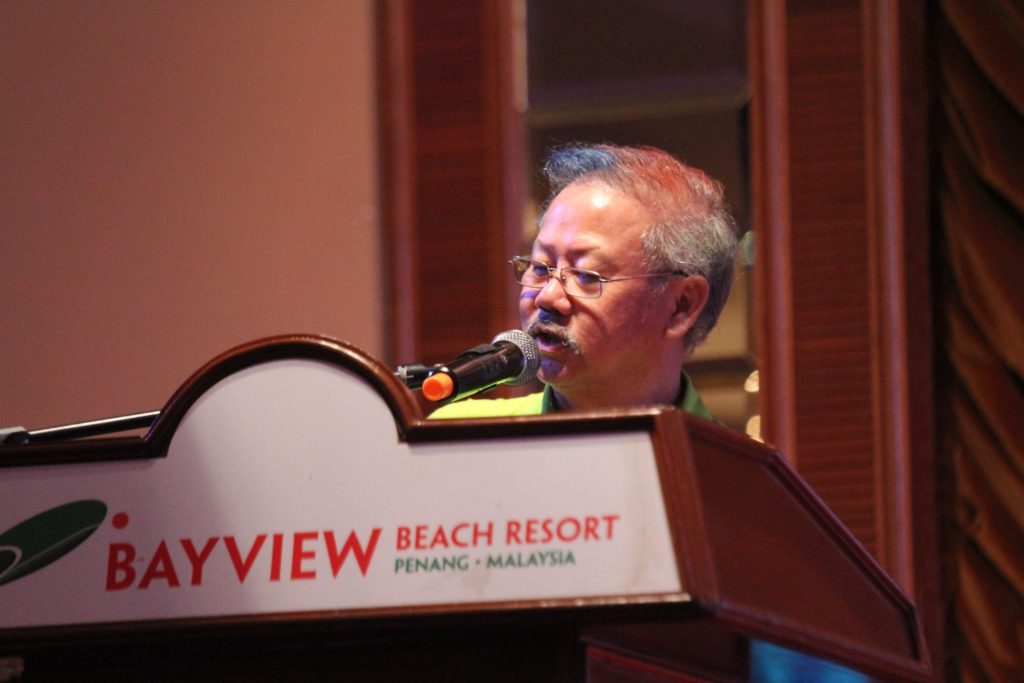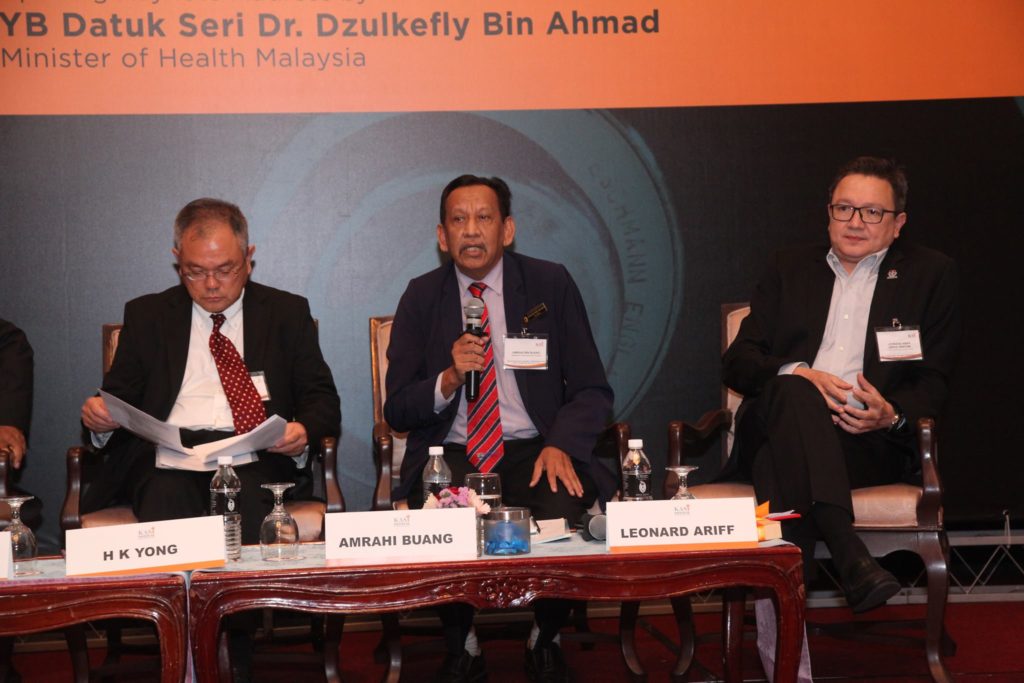KUALA LUMPUR, May 13 — Doctors, pharmacists, hospitals, and local drug manufacturers have all criticised the impending regulation of medicine prices that could significantly affect the entire health care sector.
Association of Private Hospitals Malaysia (APHM) president Dr Kuljit Singh said medicine administered in private hospitals was associated with direct and indirect costs that varied across facilities, such as medication review, drug counselling, compliance monitoring, and titration of dosage as a patient’s condition changes, among others.
He said most of a private hospital’s direct and indirect costs are lumped into a few chargeable items in a “distorted payment structure”, including medication services, because of earlier resistance to realign cost increases into their proper categories, such as room and board rates.
“A unilateral move to regulate the prices of medication services in private hospitals without a concerted move to realign the payment system will impair the viability of private hospitals and suffocate the capacity in the private health care sector to complement the government sector in meeting the health care needs of Malaysians,” Dr Kuljit told CodeBlue.
“The APHM puts on record that it is not in support of any proposed move that seeks to control the prices of medicines in private hospitals.
“A piecemeal approach without considering the entire health care financing structure and without the involvement and cooperation of the payors would ultimately collapse the Malaysian private health care sector.”
When asked if private hospitals could maintain profit margins despite drug price controls by raising prices elsewhere, Dr Kuljit said it was not easy to do so because of certain restrictions, such as insurance setting room rates.
Health Minister Dzulkefly Ahmad announced recently that the Cabinet has approved medicine price controls that will be imposed through a regulation under the Price Control and Anti-Profiteering Act 2011.
The Health Ministry plans to use external reference pricing to benchmark against cheaper drug prices in other countries. Price ceilings will then be set accordingly at the wholesale and retail points, be it at clinics, hospitals, or pharmacies.
Hasten Approval of Generics and Biosimilars
The Malaysian Organisation of Pharmaceutical Industries (MOPI), a 45-member association comprising mostly local generic manufacturers, said it previously expressed concerns about drug price controls to Dzulkefly at a town hall meeting last month, preferring instead a competitive free market to determine fair prices.

MOPI president Billy Urudra said it was more important for the government to expedite approval of generics and biosimilars for them to move faster into the market and allow competition with single-source suppliers. A single-source medicine is a drug, usually an innovator drug, whose patent has not yet expired or which possesses some exclusivities so it can only be made by one manufacturer.
Billy also urged the government to update intellectual property laws, claiming that longer protection for innovators would lead to continuous high drug prices.
“In principle, introducing a mechanism to establish a price based on prices from various countries seems all right, but which country is the government going to use? The mechanism needs to be further discussed with the industry,” Billy told CodeBlue.
Generic medicines comprised 55 per cent of Malaysia’s pharmaceutical market in terms of sales revenue in 2016, according to Malaysia Competition Commission’s (MyCC) Market Review on Pharmaceutical Sector under Competition Act 2010 (Chapter 2). MyCC also reported that generics possibly accounted for 70 per cent of market share by volume.
Pharmaceutical manufacturers in Malaysia are mostly local companies that produce generic drugs, whereas pharmaceutical importers are predominantly multinational corporations that import mostly patented medicines from their parent companies.
Although the Health Ministry plans to impose price ceilings at the wholesale level, wholesalers or distributors in the pharmaceutical industry, according to the MyCC report, do not set prices or do marketing as they do not take ownership of the goods, unlike in other industries. These independent distributors simply provide logistical services like warehousing, storage, or transport.
Will Putrajaya Stop Subsidising Medicine in Public Sector?
The Federation of Private Medical Practitioners’ Associations Malaysia (FPMPAM) pointed out that the government purchased medicines for much cheaper than the private sector, which meant that the private sector was subsidising the cost of drugs supplied to the public sector.

“Thus for any medication, merely using the government base price (reference price) and adding a maximum of 30 per cent margin for retail is too simplistic and unrealistic,” FPMPAM president Dr Steven Chow said in a statement.
He said various costs like workers’ wages, the cost of maintaining health facilities, storage cost, and dispensing cost added up to the final retail price of medicine in the private sector.
“For a ceiling pricing to be meaningful for both private and public sectors, the price for supply of any particular medication and the cost of its final dispensing to the patient must be the same for both sectors. This means that there should be no more subsidy for the cost in the public sector.
“All relevant activities’ cost must be added in the final cost of the medicine when given to the patient. In the end, the actual cost of the medication provided by the government will then be significantly higher,” Dr Chow pointed out.
The private doctors’ group urged the government to foster competition instead by getting private hospitals, many of which are owned by government-linked corporations, to display a price list of standard procedures and medicines.
Other doctors’ groups, including the Malaysian Medical Association, have warned the government that more private GP clinics would shutter if medicine prices were regulated, in light of Cabinet’s decision not to raise the consultation fees of GPs that rely on medicine sales to sustain their shop lot clinics.
Impose Floor Price Too
Malaysian Pharmaceutical Society (MPS), a group of pharmacists, expressed support for regulating medicine prices.

“The so-called free market doesn’t exist in the pharmaceutical sector,” MPS president Amrahi Buang told CodeBlue.
“By putting the laws in place, drug companies must give the prices to the government. The Good Pharmaceutical Practice Guidelines (GPTP) must be legalised for transparency and accountability.”
The GPTP guidelines under the Malaysian National Medicines Policy, which were released in 2015, aim to harmonise trading practices between pharmaceutical distribution channels to improve fair pricing and access to medicines.
Amrahi also urged the government to enforce mandatory prescriptions so that patients could choose where to buy medicines from, as well as itemised billing for each drug supplied to patients.
“MPS also requested for a floor price to be instituted since this will address the issue of price undercutting among the players in the market.”
However, another pharmacists’ group, the Malaysian Community Pharmacy Guild (MCPG), is against drug price controls.
MCPG assistant honorary treasurer Loh Peng Yeow said at a forum last March that price ceilings would not resolve price wars among community pharmacists.








